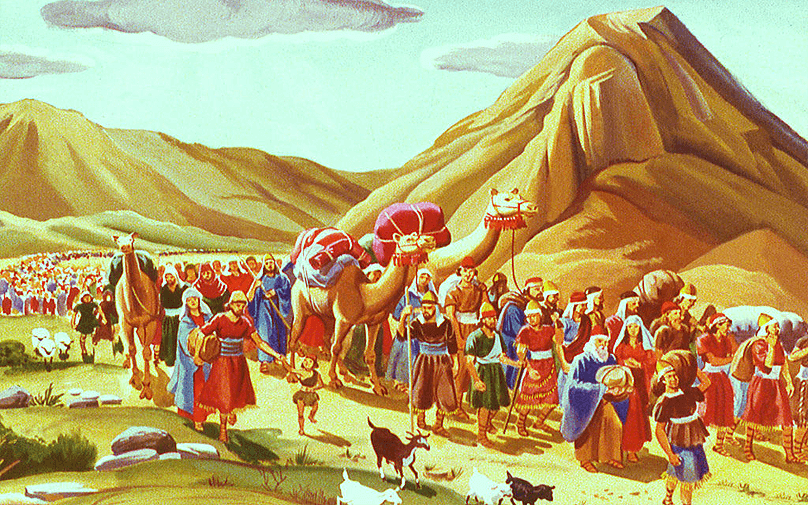Parashat Bo

Parashat Bo is the fifteenth weekly portion in the Torah and the third in the Book of Exodus (10:1-13:16). Bo means “Come [to Pharaoh],” and it is spelled with bet and aleph, the first two letters of the Hebrew alphabet. Together, they add up to three, which is a handy mnemonic for remembering that the final three of the Ten Plagues appear in the portion: locusts, darkness and the slaying of the firstborn.
In the first section (10:1-11:10), Moses is told to confront Pharaoh once again, as God has “made his heart and the hearts of his servants heavy, in order to place My signs in his midst; and so that you may recount in the ears of your son and your son’s son…”
At first, this may seem fundamentally unfair: if God is hardening, strengthening or making heavy his heart (all three terms are used at various times), how is Pharaoh culpable for his actions? However, the fact that the Torah describes Pharaoh making his own heart heavy in conjunction with God strengthening it indicates that the Egyptian king is never a mere puppet. Instead, he seeks divine encouragement to carry out his wicked desires, and he finds it, according to his own twisted conception of right and wrong. It is only when his fundamental, core desire (“his heart”) changes that Pharaoh can change his behavior.
Nevertheless, despite the devastation of the locusts’ consuming everything which survived the hailstorm and the sheer terror of a three-day blackout, Pharaoh’s response is not to change, but to threaten Moses’ life! Still, before he leaves, Moses warns Pharaoh of the final plague: the firstborn of Egypt will perish.
In the next section (12:1-36), the focus shifts to the Israelites, who are each to take a lamb for the paschal sacrifice. When they put the blood on the lintel and the doorposts of their homes, the Destroyer will spare them. The Hebrews’ hearts are being tested as well: can they violate the taboo of their Egyptian masters by making such an offering? Moreover, they are to dress for travel and even ask Egyptians for gold and silver vessels, as well as fine clothing — no easy task. Still, the Israelites fulfill their first mitzvah.
In the final section (12:37-13:16), after four centuries of Egyptian domination, the Israelites finally leave Pharaoh’s realm. Moses tells them that the day of their departure, Passover, will be a weeklong holiday for all generations, the matzah symbolizing the haste of their departure. Not only that, but the daily laying of tefillin (phylacteries) and life-cycle events such as redeeming the firstborn will also serve as constant testimony to the great miracles of the Exodus.
The portion from the Prophets is a vision rebuking Pharaoh and laying Egypt low; most communities read Jeremiah 46, but some read Isaiah 19. They underscore the challenge Egypt poses for Israel throughout history.

